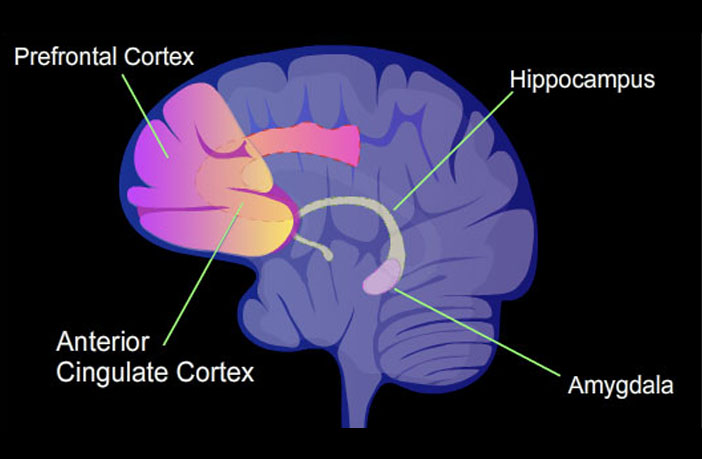New research has found that women who suffer from childhood emotional neglect can pass down the effects to their children.
The difficulties we face early-on in life are meant to shape us into our future selves. However, often the difficulties we face come in the form of neglect or abuse; resulting in an increased risk of mental health issues such as depression and anxiety. Scientists have now found evidence of childhood emotional neglect leaving a generational imprint. The research was published in the journal Biological Psychiatry: Cognitive Neuroscience and Neuroimaging.
The team of researchers recruited 48 black mother-infant pairs; part of an ongoing longitudinal study. Using the Childhood Trauma Questionnaire–Short Form (CTQ), researchers collected data on mothers’ childhood neglect. The researchers administered the questionnaires during the first trimester. The questionnaire collected information on Sexual Abuse, Physical Abuse, Emotional Abuse, Physical Neglect, and Emotional Neglect. Additionally, during the first and third trimester, mothers provided information on their current distress level. That is, a measure of anxiety, depression, and stress levels.
At one month, the infants then underwent resting-state functional magnetic resonance imaging (fMRI); a non-invasive brain scan conducted while the infants slept. These scans allowed the researchers to analyze neural connectivity in specific brain regions. Precisely, the areas involved in fear responses and anxiety.
These results show that our brain development is not only shaped by what happens in our own lives, but is also impacted by things that happened to our parents before we were even conceived.
Dr. Cassandra Hendrix, lead author of the study,
The Role of Amygdala
The amygdala is an almond-shaped collection of nuclei; located on each side of the brain. It’s responsible for processing emotions such as fear, anger, and sadness. Moreover, it stores the memory of fearful events in order to help us recognize similar moments in the future. On the other hand, the cortical regions are responsible for regulating emotions and making decisions. A disruption in the connectivity between the amygdala and the cortical regions is associated with depression and anxiety.

Results showed that infants, whose mothers faced childhood emotional neglect, had strong neural connections between the amygdala and the cortical regions. When the researchers adjusted for maternal stress levels, they found that the greater the emotional neglect, the stronger the neural connections in the infant’s brain. Thus, suggesting that childhood emotional neglect can leave generational imprints.
However, it is unclear as to why emotional neglect leads to stronger connections between the amygdala and the cortical regions. Researchers argue that it could be a compensatory mechanism to help the child detect fear more readily and adapt to stressful situations. Or, that it increases the risk for anxiety in the infant.
The findings add to evidence of the intergenerational consequences of early life adversity, such as maternal neglect. Future studies that follow children longitudinally will help us understand the functional significance of these changes in brain function in terms of the emotional and social development of children of mothers who experienced early neglect.
Dr. Cameron Carter, MD
Reference:
Cassandra L. Hendrix, Daniel D. Dilks, Brooke G. McKenna, Anne L. Dunlop, Elizabeth J. Corwin, Patricia A. Brennan. Maternal childhood adversity associates with frontoamygdala connectivity in neonates. Biological Psychiatry: Cognitive Neuroscience and Neuroimaging, 2020; DOI: 10.1016/j.bpsc.2020.11.003




